US sanctions Iranian admin of darknet marketplace
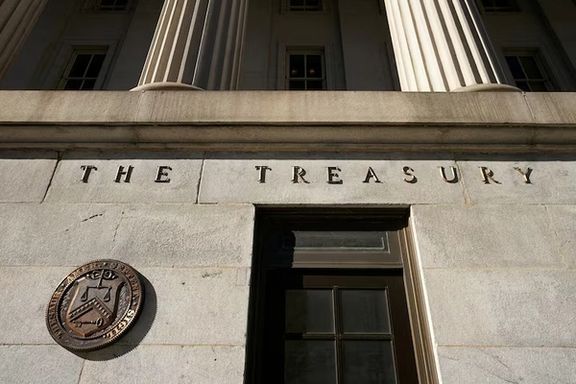
The US Department of the Treasury placed sanctions on Behrouz Parsarad, an Iran-based administrator of Nemesis, a darknet marketplace selling narcotics, dismantled last year.

The US Department of the Treasury placed sanctions on Behrouz Parsarad, an Iran-based administrator of Nemesis, a darknet marketplace selling narcotics, dismantled last year.
The platform, which facilitated the sale of narcotics and illicit services, had over 30,000 active users and facilitated transactions worth nearly $30 million between 2021 and 2024, according to the Treasury.
“As the administrator of the Nemesis darknet marketplace, Parsarad sought to build—and continues to try to re-establish—a safe haven to facilitate the production, sale, and shipment of illegal narcotics like fentanyl and other synthetic opioids,” said Acting Under Secretary for Terrorism and Financial Intelligence Bradley T. Smith.
“Treasury, in partnership with US law enforcement, will use all available tools to dismantle these darknet marketplaces and hold accountable the individuals who oversee them.”
Parsarad controlled Nemesis and its virtual currency wallets, according to the Treasury, and profited from transaction fees that amounted to millions of dollars. He is also accused of laundering virtual currencies for drug traffickers and cybercriminals operating on the platform.
The US, German, and Lithuanian law enforcement agencies seized Nemesis’ servers last March, but the Treasury says Parsarad has since been in discussions with former vendors about launching a successor platform.
The sanctions block all Parsarad-related property under US jurisdiction and prohibit financial transactions with him. Treasury also identified 49 virtual currency addresses linked to him. Financial institutions engaging with Parsarad may face penalties.
When Nemesis was taken down, German authorities said that more than 150,000 user accounts and over 1,100 seller accounts were registered on the site, accessible on the Tor network.
Other than drug trafficking, the site had facilitated the trade of fraudulently obtained goods and data, as well as cybercrime services such as DDoS attacks, phishing, and ransomware.
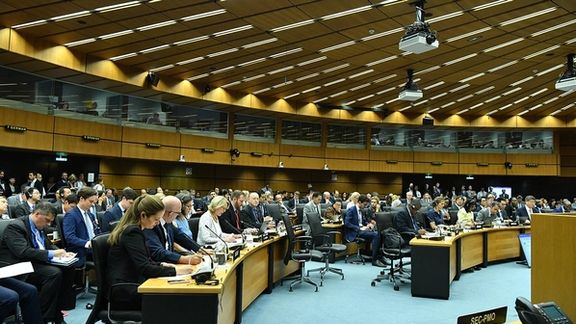
Iran’s ambassador to the International Atomic Energy Agency (IAEA) said on Wednesday that the three European parties to the 2015 nuclear deal (E3) have no legal or moral standing to trigger the deal’s dispute mechanism, known as the snapback.
Speaking during a meeting of the IAEA’s Board of Governors on Wednesday, Mohsen Naziri Asl accused Britain, France and Germany (known as the E3) of violating both the 2015 nuclear deal, or JCPOA, and UN Security Council Resolution 2231 – the basis for the deal.
"Since the E3 are in violation of Resolution 2231 and the JCPOA, they lack the legal and moral standing to trigger the dispute resolution mechanism in response to Iran's limited and legitimate actions, which are explicitly recognized in the JCPOA," he said.
He argued that they had no grounds to reactivate the dispute process in response to what he called Iran’s legitimate measures, which he said were explicitly permitted under the agreement.
“Any attempt to trigger the dispute mechanism or pursue this futile path is legally baseless, unjust and unlawful, and will be firmly rejected,” he added.
The snapback mechanism allows for the reinstatement of United Nations sanctions on Iran if it is deemed to have violated the JCPOA.
Iran has progressively reduced its compliance with the nuclear deal in response to the United States' 2018 withdrawal from the agreement and the subsequent reimposition of sanctions, including reducing access to IAEA inspectors.
The E3 has repeatedly expressed concern over Iran's nuclear activities, but Tehran maintains its actions are justified and within the framework of the JCPOA.
During another session of the IAEA Board of Governors on Tuesday, the European Union warned that Iran’s continued nuclear expansion poses a growing risk of proliferation, calling on Tehran to return to its commitments under 2015 deal and adhere to UN Security Council Resolution 2231.
The United States also said Iran's accelerating nuclear program is imperiling world peace and either aims to get Tehran closer to a bomb or force the world to ease sanctions.
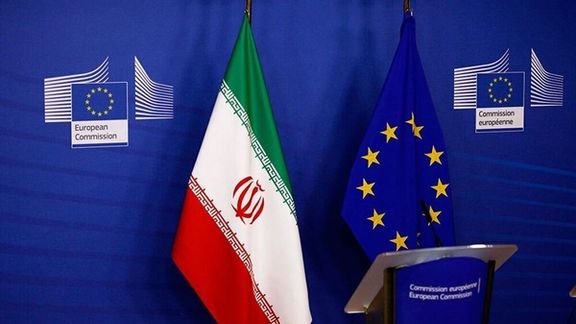
The European Union warned that Iran’s continued nuclear expansion poses a growing risk of proliferation, calling on Tehran to return to its commitments under 2015 deal and adhere to UN Security Council Resolution 2231.
The statement was delivered in Vienna during the quarterly meeting of the International Atomic Energy Agency (IAEA) Board of Governors on Tuesday.
“The EU remains deeply concerned by the continued alarming expansion of Iran’s nuclear program. Iran has gravely departed from its the Joint Comprehensive Plan of Action (JCPOA) commitments and has gained irreversible knowledge.
"The EU notes with particular concern Iran’s significantly increased production and accumulation of highly enriched uranium and the expansion of its nuclear enrichment capability and operations,” the EU representative in Vienna said.
The EU praised IAEA Director General Rafael Grossi and his team for their independent monitoring and reaffirmed that ensuring Iran does not develop a nuclear weapon remains a key security priority.
“We call on all countries to support the implementation of UN Security Council Resolution 2231 (2015) endorsing the JCPOA, which provides the basis for the IAEA's monitoring and reporting. We regret that Iran has not made the necessary decisions to return to its nuclear-related commitments under the JCPOA.”
According to the EU, Iran’s uranium enrichment has reached levels that raise significant proliferation concerns. “The DG’s report documents a sharp increase of material enriched at 60% which is now produced at an unprecedented rate, with a 50% increase in the reporting period," the statement said.
"Iran already accumulated more than 6 significant quantities of 60% enriched material [which the Agency defines as the approximate amount of nuclear material for which the possibility of manufacturing a nuclear explosive device cannot be excluded] and is currently producing one significant quantity of highly enriched uranium every month.”
The EU also condemned Iran’s decision to remove JCPOA-related surveillance and monitoring equipment, arguing that it has compromised the IAEA’s ability to verify the nature of Iran’s nuclear activities.
In addition, the EU criticized Iran’s rejection of four additional IAEA inspectors on the back of 2023's ban around one third of the inspectors.
“We echo the DG’s deep regret that Iran, despite having initially accepted to consider it, has finally refused the designation of four additional experienced inspectors recently proposed by the Agency," a statement said.
The United States also said on Tuesday that Iran's accelerating nuclear program is imperiling world peace and either aims to get Tehran closer to a bomb or extort the world to extract concessions.
Tehran denies seeking a nuclear weapon and has branded suspicions over its intentions as a way for outside powers to meddle in internal affairs.
Grossi reported that Iran's uranium stock refined to up to 60% purity grew by 92.5 kilograms (kg) in the past quarter to 274.8 kg. According to an IAEA parameter, the amount is enough in principle for six nuclear bombs if enriched further.
Trump has mooted a deal over the program but Iranian Supreme Leader Ali Khamenei has ruled out talks while the administration imposes 'maximum pressure' policies including toughened sanctions.
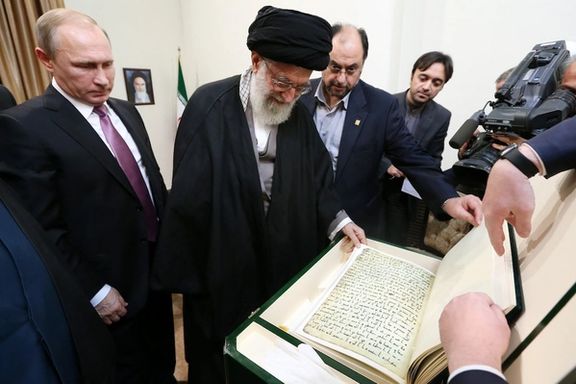
Russia suggested to the United States that the two powers should hold talks focused on Iran's nuclear program, the Kremlin confirmed on Wednesday, in yet another sign of converging outlooks on global affairs by Washington and Moscow.
"The topic of Iran was on agenda, it was touched upon but not in detail," Kremlin spokesman Dmitry Peskov said in a call with reporters on Wednesday, referring to talks between Russia and the US in Riyadh last month.
"We suggested making it a separate subject of our dialogue and our consultations in the future," Peskov added. "Russia's position is that the issue of Iran’s nuclear dossier needs to be solved only through political and diplomatic means ... Russia is ready to do everything possible for it."
Moscow and Tehran signed a strategic cooperation treaty in January which both said would further strengthen ties that have been growing in the last few years.
Russia has relied on Iranian-made drones in its war in Ukraine, while Iran has sought deeper economic and military ties with Moscow to counter US-led sanctions.
President Donald Trump's efforts to end the war in Ukraine may pave the way for further cooperation with Russian president Vladimir Putin, who has offered to leverage his unique standing in Tehran to mediate between Iran and the US.
Bloomberg reported on Tuesday that Russia has agreed to assist Washington in communicating with Iran on various issues, including its support for regional groups hostile to the US.
The report has not been confirmed by Russian officials.
Iran has accelerated its nuclear program since 2022, enriching uranium to near weapons-grade levels while restricting access to international inspectors.
President Trump has said that his administration will not allow Tehran to acquire nuclear weapons but would seek a deal to that end before turning to other options.
Iran asserts that its nuclear program is solely for peaceful purposes, a position doubted by the UN nuclear watchdog, which says no non-nuclear armed country has ever enriched uranium to the purity that Tehran has.
Russia on Tuesday defended Iran’s actions in recent years, arguing that Tehran’s steps were a response to the US withdrawal from the JCPOA, a decision made in 2018 during the first Trump administration.
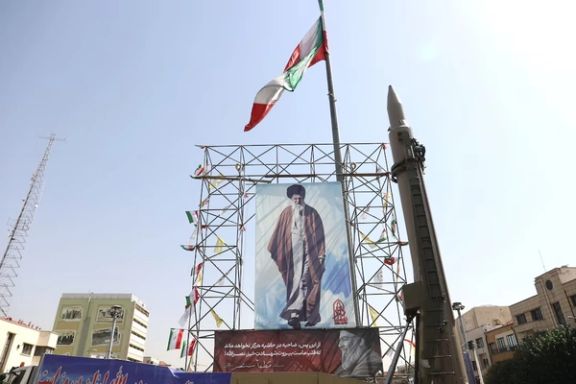
Iran’s military security is fundamentally different from nations that depend on foreign powers, Foreign Minister Abbas Araghchi wrote in Ettela’at daily on Wednesday, pointing to the Trump-Zelensky flare-up this week.
“Iran does not purchase its security; it builds it,” he said, arguing that its independence comes at a cost Tehran has long been willing to pay. "Iran has demonstrated that dependence on others is not only a risk but also a strategic mistake."
He said the country has chosen a path of self-reliance, avoiding the risks that come with dependence on shifting geopolitical alliances, highlighted last week in the very public spat at the Oval Office between Ukrainian President Volodymyr Zelensky and US President Donald Trump over Russia's invasion of Ukraine.
"Maintaining independence comes at a cost, and Iran has always paid that price. Since the early days of the Islamic Revolution, economic pressures, sanctions, military threats, and proxy wars have all been designed to turn Iran into a submissive player in the international system," he wrote.
"The recent dispute at the White House between Donald Trump, J.D. Vance, and Volodymyr Zelensky was not just an ordinary disagreement; it revealed deepening fractures at the core of the international system."
Following the heated exchange, Supreme Leader Ali Khamenei’s office reposted his 2022 remarks warning against reliance on the West.
Banners reflecting this message have also appeared across Tehran, featuring phrases such as “End of the mirage” and “Leaning on the wind.”
The column pointed to shifting dynamics in Ukraine, where Zelensky—once reliant on Western aid—now challenges US leadership directly.
“Even small allies are realizing that their dignity comes at a cost,” he added.
Although Iran produces many types of weapons, its arsenal is technologically inferior to Western and many Russian weapons. Iran does not have an effective air force, and despite Araghchi's claim of independence buys many weapons systems from others, such as Russia.
Since Friday's clash, many Iranian hardliners have said that the Trump-Zelensky blowout validates Khamenei’s opposition to negotiations with the United States.
Citing Khamenei’s early February speech, in which he declared negotiations with the Trump administration would not be “wise, expedient, or dignified,” they argue that Trump's confrontational exchange with Ukrainian President Volodymyr Zelensky in the Oval Office should serve as a warning to those who question Khamenei’s stance.
Araghchi’s comments about self-reliance contrast with the reality that the general population in Iran is experiencing.
With over 40 percent inflation, skyrocketing prices, and the devaluation of the national currency, one-third of the population has fallen below the poverty line—something that, according to many, the officials of the Islamic Republic never experience in their own lives.
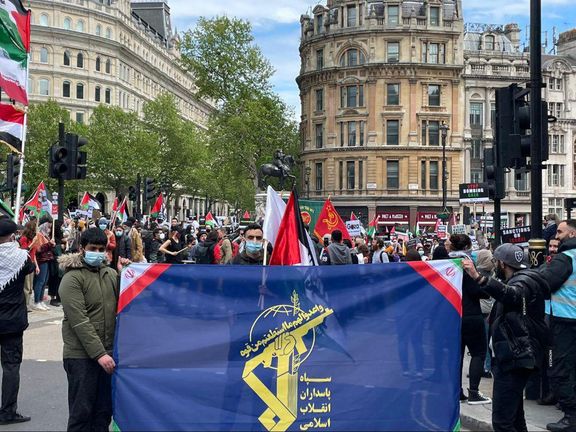
Britain will put Iran's intelligence and security establishment on the highest tier of a foreign influence watchlist, security minister Dan Jarvis told parliament on Tuesday, toughening London's stance on perceived political interference by Tehran.
The upgrading of Iran to the highest tier of the United Kingdom's Foreign Influence Registration Scheme (FIRS) due to be rolled out in the summer ratchets up tension between the nuclear-armed security council member state and the Islamic Republic.
Under the designation, Iran and anybody acting on its behalf would be deemed a potential security threat and compelled to register their activities in the UK. Not doing so would potentially incur a five-year prison sentence.
"We will place the whole of the Iranian state, including Iran's intelligence services, the IRGC and MOIS (Ministry of Intelligence), on to the enhanced tier of the new foreign influence registration scheme," Jarvis told parliament.
Jarvis was referring to the Islamic Revolutionary Guard Corps, a paramilitary organization at the heart of the Iranian establishment which oversees foreign operations including aid to militant groups Hamas, Hezbollah and the Houthis.
Pointing to threats from Iran, he mentioned that in December 2023, a Chechnya-born individual was sentenced to three and a half years in jail by a British court for collecting information for terrorist purposes. He had been arrested earlier that year in a Starbucks near Iran International’s premises after being spotted filming the broadcaster’s building in West London.
"The national protective security authority and counter-terrorism police will continue to provide protective security advice and support to individuals and organizations threatened by the Iranian regime and its criminal proxies, including Persian-language media organizations and their employees," Jarvis told the parliament.
The UK and European states have so far stopped short of following the United States in designating the IRGC a terrorist organization.
According to an announcement by UK counter-terrorism police in 2023, UK security forces foiled 15 kidnapping and murder plots against British or UK-based targets deemed Tehran's enemies.
Jarvis said that since 2022, 20 Iranian-backed plots putting the lives of British citizens or UK residents at risk had been foiled, adding that the number of state-level investigations run by MI5 had jumped by 48% in the past year.
"It's clear that these plots are a conscious strategy of the Iranian regime to stifle criticism through intimidation and fear," he noted.
Journalism watchdog Reporters Without Borders said last year that Tehran was carrying out "systematic targeting of journalists reporting on Iran from abroad, in an effort to silence them."
"London, home to major Persian-language broadcasters, has been a hotspot for such attacks because of the large number of Iranian journalists based there," the group added.
The British government last month denied funding an Iranian influence network in Western countries, rejecting remarks by a Swedish-Iranian scholar who said his involvement in the initiative was backed by the UK government.